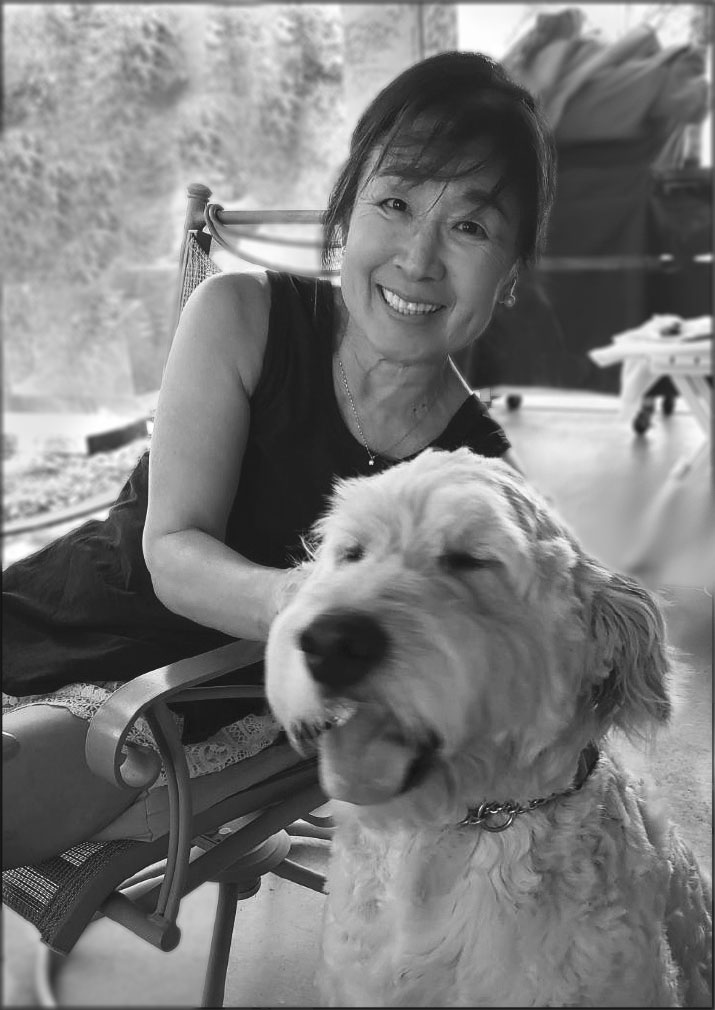By TOMO HIRAI Nichi Bei Weekly

Kazumi Schmidgall enjoys playing the piano, hiking and kickboxing. The Shin-Issei high school math teacher had such an active and healthy life, she could hardly believe it when she was diagnosed with acute myeloid leukemia and a lung infection in September.
Schmidgall, who is in her 60s, is working with Asian American Donor Program, which is based in Alameda, Calif., and A3M in Los Angeles, to find a blood stem cell donor to aid her recovery.
When Schmidgall first became fatigued and had a fever, she thought she had caught the coronavirus. While her tests came back negative, the urgent care doctors took an X-ray of her lungs and urged her to go to the emergency room.
“At that point, the oncologist told me I have two weeks to live without treatment,” Schmidgall told the Nichi Bei Weekly in a phone interview. “So that was quite a shock … this kind of stuff is very foreign to me. So when he told me the diagnosis, and also the length of life that I might have it didn’t kick in. It didn’t sink in very well.”
Schmidgall lives south of Phoenix with her husband Steven. Her two adult children, both doctors, live nearby. She said her family has stepped up to support her as she began chemotherapy a week after her diagnosis. Her husband now serves as her constant caregiver, helping her with doctor appointments and medication. Her children secured medical leave from their jobs, which allows them to visit their mother and make her dinner.
“My son is also a medical doctor, so as far as speaking to my own doctor, using all the medical term(s). it’s great to have them around so I can totally understand what’s going on,” Schmidgall, whose native language is Japanese, said. As Schmidgall begins her third round of chemotherapy, doctors are looking for a blood stem cell donor, and soon. She will likely need a donor who is ethnically Japanese.
“The likelihood of finding a match in the Japanese community, it’s a 44 per-cent chance,” Carol Gillespie, executive director of AADP. told the Nichi Bei Weekly. She said the odds were “dismal.”
According to Gillespie, there are 10 million people registered with the national Be The Match registry for stem cell and bone marrow donors, but only 32,455 of them are solely of Japanese descent. Compared to the 9 million potential white donors who have a 77 percent likelihood of a match, Asian Pacific Islanders overall have a 41 percent chance and Black people have a 23 percent chance of finding· a donor.
According to Gillespie, the greatest challenge in finding potential donors for Schmidgall lies in the need to constantly find new donors to register as donors get older.
“Our ideal donor is between the age of 18 and 25, although anyone from 18 to 44 can register, but the doctors really like those young donors. They have nice healthy stem cells, so the transplant outcome for the patient is much better,” Gillespie said. Finding young donors, however, has been a challenge due to the ongoing pandemic.
“One of our problems that we’re having this year because of COVID, is we’re not allowed to be on campus. Students aren’t on campus, so we can’t go in and that is our biggest source of recruitment or potential donors,” she said. AADP has increased efforts to send home kits to register potential donors, and is trying to connect with them on social media sites, including TikTok and Instagram. 111e organization has also appealed to older generations, hoping” parents might urge their children to register. “These people will die without a donor. They will never do a transplant for somebody that could possibly live with this disease. They’ll do it because they will not survive without a transplant.” Gillespie said. “So people need to realize that, that it’s that important. And stem cell collection now is so much easier. For Kazumi, they’re not going to want bone marrow, they’re going to want peripheral blood stem cells. Those stem cells are what is going to save her life, and you have one day of discomfort and you might have a headache and maybe some bone aches and pains, but she gels to live on and be with her family and grandkids. It’s an amazing gift to give somebody.”
Gillespie urged potential donors seeking to help Schmidgall to contact her organization directly.
“Be The Match sometimes can take five to seven days before they even send the kit out, and then you have to wait for the mail. So I’m a little quicker, mainly because I’m smaller. They have mass volumes,” Gillespie said. “When patients’ lives are at stake, I think that that’s important.”
Schmidgall said her passion in life is teaching. Mer moving lo the United States in the 1980s, she first taught for 10 years al the Japanese Weekend School in Long Island. Sarah Thomas, Schmidgall’s daughter, said the family moved to Arizona in 2001 and Schmidgall taught another 13 years al the Arizona Gakuen School in Tempe, Ariz. and more recently at Cesar Chavez High School in Phoenix.
“I’m determined to get well, ” Schmidgall said. “I want to continue lo contribute my skill to teaching children, because it’s the love of my life.”
DEC. 17 -31. 2020 | NICHI BEI Weekly

Leave a Reply